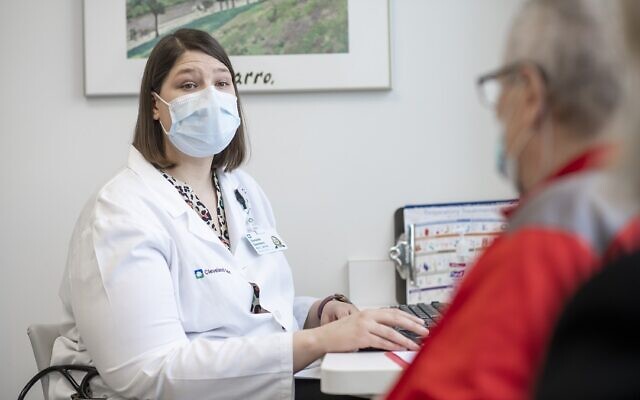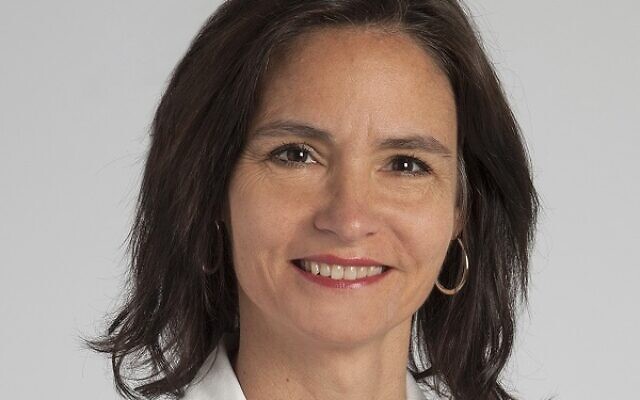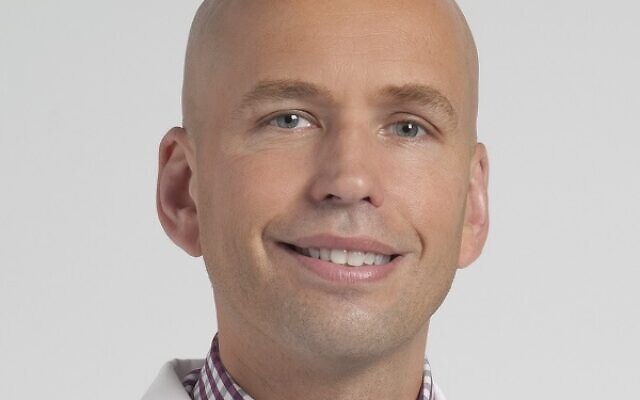The Aftermath of Long COVID
Why a proper diagnosis following recovery is important.
Robyn Spizman Gerson is a New York Times best-selling author of many books, including “When Words Matter Most.” She is also a communications professional and well-known media personality, having appeared often locally on “Atlanta and Company” and nationally on NBC’s “Today” show. For more information go to www.robynspizman.com.

As if acquiring the Coronavirus was not enough, a fast-growing number of post-COVID patients who have recovered from the infection are experiencing a varied list of symptoms. According to these experts’ front-line view, Long COVID is a serious health issue and medical experts are coordinating with specialists needed to effectively treat those patients.
Dr. Alex Truong, MD, MPH, is co-director of the Emory Executive Park Post-COVID Clinic and assistant professor of medicine at Emory University Hospital Midtown. He completed a four-year fellowship at Johns Hopkins Hospital and his research centered on long-term outcomes in survivors of critical illness.
In response to COVID’s aftermath for patients with symptomatic issues, Truong offered some insight. He said, “Long COVID patients have been called ‘long haulers’ and it’s complex because the definition is still in flux.”
The Centers for Disease Control has defined it as “persistent or new symptoms occurring four weeks after COVID infection.” The World Health Organization offers a different timeframe occurring at least two months following the infection, which he shared, stating,: “post-COVID-19 condition occurs in individuals with a history of probable or confirmed SARS CoV-2 infection, usually three months from the onset of COVID-19 with symptoms and that last for at least two months and cannot be explained by an alternative diagnosis. We’re observing that the symptoms patients are experiencing seems to be growing by the day. Patients need to have access to experts who have experience and the knowledge to treat them over time.”
Dr. Truong commented, “One thing we offer at Emory is very important as we validate what someone is going through. Since the pandemic began, we’ve had a lot of experience and seen a very wide range of patients to figure this out. I think the only way we can survive COVID is to do it together. I’m so grateful to many knowledgeable experts in their fields we can learn from to help us with each diagnosis. For example, brain fog is affecting a lot of our patients. Patients forget things, have a memory issue, and we’ve come to understand their brain fog is an attention issue. We are gathering a diverse group of specialists who can investigate patients’ specific issues and provide guidance on best care, including cardiologists, neurologists, psychiatrists, rheumatologists, otolaryngologists, rehabilitation specialists and many others.
“We are also getting more and more patients and referrals with each wave of infection months after each infection hits.” Truong shared, “We are booked out months ahead and some patients have waited four to six months to see us or traveled here. In general, we need more knowledge out there that this is a real syndrome. We know it’s true and seeing large amounts of patients coming in with the exact same story. From mild to moderate diseases, there’s a long list of post-COVID symptoms, including three of the most widely mentioned: fatigue, shortness of breath, brain fog, along with many other symptoms. More than 60 percent of my patients do not have respiratory problems. What we obviously need is more education for doctors and coordinated support regarding what to do to help these patients.”
Dr. Truong continued about what’s starting to surface.
“Some post-COVID patients continue to experience symptoms regarding specific organs, chronic inflammation, or possibly a breakdown of checks and balances in the immune system. We’re having a lot of suspicion,” he said. “Some of us wonder if there’s an autoimmunity issue after COVID or is it persistent inflammation? However, we are not seeing inflammatory markers. The traditional methods of diagnosing inflammation seem to be not pertinent with post-COVID syndrome.”
When asked what he wants long COVID patients to know, Truong replied, “I want to tell patients to have hope and what you’re going through is real.” He added, “As the days and months and years go by, hopefully, we’ll get to a point that we’ll find more effective treatments, but we must inch towards it. The key is time. Time to better understand this problem and time for patients to get well. The most important thing to keep in mind is that there’s hope, help and people who will listen to them.”

Dr. Kristin Englund, vice chairman of infectious disease and director of Cleveland Clinic Long COVID Recover Center of Excellence, which is a multi-disciplinary clinic, shared her perspective.
“By mid-2020, we were certainly hearing about patients experiencing persistent symptoms for months. Patients started to see us in infectious disease after COVID, and we were able to quickly realize there was not a persistent infection and instead, other symptoms and syndromes,” she said. “Together, a number of my colleagues and specialists from about 18 other specialties collaborated to develop a group of providers interested in diving into Long COVID and developing an expertise in this area.”
Englund continued, “As we pulled a team together, more specialties began to join us. More than 2,000 patients have now gone through our program at Cleveland Clinic. Along with our integrated specialties, we have documented Long COVID symptoms which included fatigue, headaches, sleep disorders, neuro-cognitive disorders, brain fog, smell and taste loss, hair issues, chronic cough, shortness of breath, racing heart, problems with dizziness, tingling in hands and feet, Postural Orchestic Tachycardia Syndrome and other post-viral symptoms. We also have seen headaches, tinnitus, loss of hearing and much more.”
She added, “Long COVID is hard to wrap your head around as it affects every person differently. There is still a lot to learn about the causes of Long COVID and why certain people are affected. In fact, the National Institutes of Health is conducting a study looking at this. I’m certainly optimistic that there are a lot of groups that are looking into the causes of Long COVID from a cellular level. Currently, we are treating symptoms. In the next two years, I’m optimistic that we’ll see more target therapies.”
Dr. Englund shared, “I am still someone who takes precautions to avoid COVID-19. I will wear a mask at the grocery. I err on the side of caution. In addition, we have so many other viruses affecting patients right now, including influenza and Respiratory Syncytial Virus. By wearing my mask in public, I want to also make patients and others feel more comfortable masking. Long COVID is nuanced to each and every person. It’s important that you talk to your primary care doctor if you feel you are affected. Currently, there’s no magic pill to treat Long COVID, but we hope we can help to develop longer term plans and help patients move towards a healthier life.”

Along with Englund, colleague Dr. Robert G. Wilson, a neurologist at Cleveland Clinic’s Long COVID Recover Center of Excellence, explains, “Long COVID is complicated. We are learning how COVID has shocked the system. It does injury to the peripheral nervous system and with that problem, nerve injury can cause direct injury to the brain. The other things we are seeing is a heightened state of stress and the brain is alerted and a few things happening in a stressed body, the brain is hypervigilant and in a hyper-stressed state.”
To simplify it, he suggests, “Think of it like this. The body is a house. The virus is the fire. And the smoke damage is what happens in Long COVID. You might even look well, but not feel well. We want to recognize that people are going through something and respect the human experience. Following COVID, patients are coming in with similar stories and symptoms. They say, ‘I’m fatigued. I can’t think. I can’t sleep. I feel tingling. I have headaches.’”
He said, “We are using different treatments: physical therapy, medications, exercise, tai chi, yoga, meditation, mind-body spirituality, health psychology, biofeedback. We’re working together. The bonding force is compassion and trying to really help people. That is the push that will help to move us forward.”
- News
- Local
- Robyn Spizman Gerson
- Coronavirus
- COVID
- Dr. Alex Truong
- Emory Executive Park Post-COVID Clinic
- Emory University Hospital Midtown
- Johns Hopkins Hospital
- Centers for Disease Control
- World Health Organization
- Cardiologists
- neurologists
- Psychiatrists
- rheumatologists
- otolaryngologists
- rehabilitation specialists
- Dr. Kristin Englund
- Cleveland Clinic Long COVID Recover Center of Excellence
- fatigue
- headaches
- sleep disorders
- neuro-cognitive disorders
- smell and taste loss
- hair issues
- chronic cough
- shortness of breath
- racing heart
- problems with dizziness
- tingling in hands and feet
- Postural Orchestic Tachycardia Syndrome
- National Institutes of Health
- Respiratory Syncytial Virus
- RSV



comments